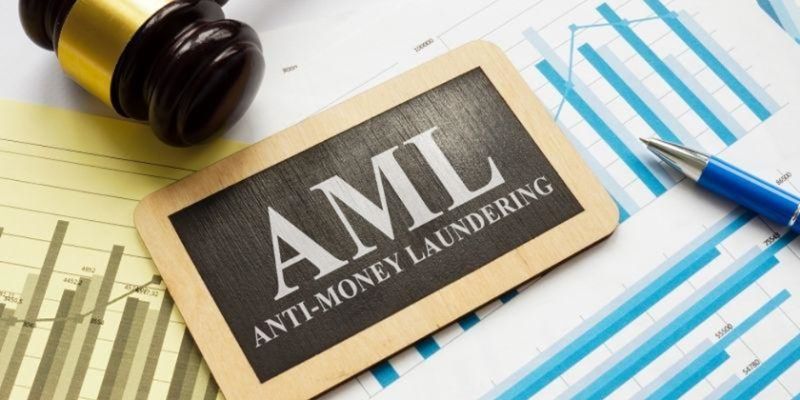In the fast-evolving landscape of financial security, becoming an anti-money laundering (AML) analyst is a crucial and impactful career choice, especially in the dynamic setting of the United Arab Emirates.
Money laundering poses a significant threat to the integrity of financial institutions, and understanding how to become an anti-money laundering analyst is essential for safeguarding against illicit financial activities.
Anti-money laundering refers to regulations, policies, and procedures designed to prevent illegal income generation through activities seeking to conceal funds’ origins. The financial sector is particularly vulnerable to such illicit activities, making the role of AML Analysts indispensable.
AML Analysts act as frontline defenders against financial crimes, meticulously analyzing transactions, identifying suspicious patterns, and ensuring compliance with regulatory standards.
In the UAE, where the real estate sector is a cornerstone of the economy, the demand for skilled AML Analysts is rising.
Real estate and financial institutions, including banks and other monetary entities, rely on these professionals to maintain compliance with strict AML regulations and uphold the highest standards of financial integrity.
Join us in understanding the vital steps toward a rewarding career as an AML Analyst and contribute to the real estate sector’s resilience in the UAE.
3 Steps to Become an Anti-Money Laundering Analyst
An anti-money laundering analyst career involves a structured approach to education, certification, and experience. These three steps form the foundational pillars for individuals aspiring to play a crucial role in financial integrity and compliance.
These three steps – educational attainment, CAMS certification, and financial experience – form a comprehensive approach to becoming a proficient anti-money laundering analyst, contributing significantly to the integrity and security of the UAE’s real estate arena.
1. Obtain a Bachelor’sBachelor’s Degree
Acquiring a Bachelor’s Degree is the foundational step toward a career as an anti-money laundering analyst. This educational milestone provides a critical understanding of finance, accounting, and business – essential domains for professionals working in anti-money laundering.
Many successful analysts often pursue degrees in these areas, laying the groundwork for a comprehensive grasp of financial systems and regulatory frameworks.
2. Get CAMS Certification
The Certified Anti-Money Laundering Specialist (CAMS) certification is a pivotal credential for anyone aspiring to be an Anti Money Laundering Analyst.
Offered by the Association of Certified Anti-Money Laundering Specialists (ACAMS), this certification signifies a commitment to the highest standards of preventing financial crimes.
To be eligible for the CAMS exam, candidates typically need at least 40 college credits, emphasizing the importance of education and specialized certification in this field.
3. Obtain Financial Experience
While education and certification set the foundation, real-world experience is testing and honing playground skills.
Many employers seek candidates with practical experience in financial institutions like banks. This experience enhances the candidate’s profile and provides first-hand insights into the challenges and intricacies of anti-money laundering efforts.
Experienced real estate professionals and brokers have the most significant potential to impact this critical financial security and compliance domain substantially. Financial and real estate experience is the third crucial step in becoming a proficient anti-money laundering analyst.
Want to know the ins and outs of anti-money laundering? Enroll in the Anti-Money Laundering course for the UAE Real Estate Sector and become an essential member of the anti-money laundering workforce in the UAE.
Duties and Responsibilities of an AML Analyst
Here are the responsibilities and duties of an AML analyst.
- Conducting Due Diligence: Perform thorough due diligence on customers and transactions to identify potential risks and suspicious activities.
- Monitoring Transactions: Monitor financial transactions for unusual patterns or trends indicating money laundering or other illicit activities.
- Investigating Alerts: Investigate and analyze alerts generated by anti-money laundering systems, determining whether they require further action or reporting.
- Maintaining Records: Keep detailed records of investigations, findings, and actions taken to ensure compliance with regulatory requirements.
- Reporting Suspicious Activities: Prepare and submit suspicious activity reports (SARs) to relevant authorities when potentially illegal activities are identified.
- Staying Informed: Stay abreast of changes in regulations, laws, and industry best practices related to anti-money laundering to ensure compliance.
- Collaborating with Law Enforcement: Collaborate with law enforcement agencies and other stakeholders in case of a confirmed money laundering case.
- Implementing AML Policies: Assist in developing and implementing anti-money laundering policies and procedures within the organization.
- Training and Education: Train employees on anti-money laundering policies, procedures, and compliance measures.
- Risk Assessment: Conduct risk assessments to evaluate the organization’s vulnerability to money laundering activities.
- Advisory Role: Guide other departments on AML matters and potential risks.
- Ensuring Compliance: Ensure the organization complies with all relevant anti-money laundering laws and regulations.
- Utilizing Technology: Utilize advanced software and technology tools to enhance the efficiency and effectiveness of anti-money laundering efforts.
Required Skills to Become an AML Analyst
Specific skills are essential to excel as an anti-money laundering (AML) analyst. These skills facilitate effective performance and contribute to maintaining the integrity of the real estate sector and preventing illicit financial activities. Here are the essential skills required:
- Attention to Detail: A crucial skill for an AML analyst involves meticulous attention to detail. Detecting subtle patterns or anomalies in financial transactions requires a keen eye.
- Analytical Skills: AML analysts must possess strong analytical skills to interpret complex financial data, identify irregularities, and draw meaningful conclusions from patterns.
- Critical Thinking Skills: Given the evolving nature of financial crimes, AML analysts need critical thinking skills to assess situations, connect the dots, and make informed decisions swiftly.
- Time Management Skills: Efficient time management is essential for AML analysts who often need to handle multiple investigations simultaneously. Prioritizing tasks and meeting deadlines is critical.
- Communication Skills: AML analysts need practical communication skills to articulate their findings clearly in reports, collaborate with colleagues, and potentially testify in legal proceedings.
These skills empower AML analysts to identify, investigate, and mitigate potential money laundering activities, safeguarding the financial system from illicit practices.
Conclusion
Becoming an anti-money laundering (AML) analyst requires education, certification, and honing specific skills. The role of an AML Analyst is pivotal in the financial sector, contributing significantly to the prevention and detection of illicit financial activities.
Want to know how to become an Anti-Money Laundering Analyst in the UAE? Here are the steps you need to follow:
- Obtaining a relevant bachelor’s degree.
- Acquiring the Certified Anti-Money Laundering Specialist (CAMS) certification.
- Gaining financial experience.
These foundational steps set the stage for a career dedicated to maintaining the integrity of financial institutions and upholding the principles of transparency and accountability.
AML analysts play a crucial role in safeguarding financial systems, contributing to the global efforts against money laundering and the financing of terrorism.
As you step into anti-money laundering analysis, consider leveraging the resources and support offered by ThinkProp to enhance your skills and make a meaningful impact in the fight against financial crime.
Elevate your career by choosing the best real estate training courses, ensuring you are well-equipped to navigate the complexities of the financial landscape.








